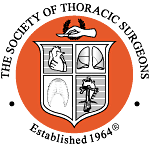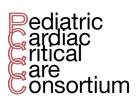 |
 |
 |
CardioAccess developed the first fully relational database for congenital heart disease. CardioAccess’ products integrated within our “Centripetus Web Portal”, function as a tool for patient care, teaching, research, and practice management, giving the clinician the ability to track patients longitudinally over extended periods of time. The software currently is composed of 9 modular but fully integrated registry databases including Congenital Cardiovascular and Thoracic (STS), Adult Cardiovascular, Adult Thoracic (STS), Anesthesia (STS), Transplant, Congenital Cardiology (ACC Impact), ECMO (ECLS), CICU (PC4 Pediatric Cardiac Critical Care Consortium), and CICU PAC3 The goal of these databases is to provide medical practices with local and / or remote access to real time information leading to better clinical care.
Our products are developed using the latest versions of Microsoft .NET™ and Microsoft SQL Server™ which enables the software to be easily integrated with other Microsoft Office™ applications. For example, communication with the statistical analysis tools of Microsoft Excel™, the graphics of Microsoft PowerPoint™ for presentations, and the word-processing capabilities of Microsoft Word™ are all available to the user.
The CardioAccess ICO Database allows for entry of data at multiple entry points to facilitate utilization of the database during the patient care process. More than 700 data elements are captured in these databases, including demographic, insurance, preoperative, operative, perfusion, imaging, postoperative, discharge and follow-up information. Data is entered in real time, at well-defined points during the patient’s physician office visits and hospitalizations. CardioAccess utilizes the following data entry points:\r\n
-
- Demographic and Hospitalization data is entered in the office by office staff.
-
- Preoperative data is entered in the office or on the patient care wards by the nursing staff.
-
- Operative data is entered directly in the operating room by the operating room staff. This operative data includes all STS core data elements as well as detailed listings of diagnosis with associated ICD-9 Codes and procedures with associated CPT Codes.
-
- Perfusion data is entered directly in the operating room by the perfusionist.
-
- Digital operative imaging and video, such as cardioscopy, can be stored digitally in both still photos and motion video format in the operating room.
-
- Information regarding valves, conduits, shunts, implants, devices and transplants is entered directly in the operating room.
-
- Postoperative data, including complications with associated ICD-9 Codes, is entered by the nursing staff.
-
- Follow-up Data, including a comprehensive patient satisfaction questionnaire, is entered by the office staff and nursing staff.
The data entered at these multiple data entry points is then compiled into numerous tables, spreadsheets, and reports for data retrieval. On-site statistical analysis of this data is readily accomplished, obviating the delay and expense incurred by reliance upon off-site data analysis. The system allows for real-time outcomes analysis. The Society of Thoracic Surgeons risk stratification algorithms incorporated within the ICO Modules allows users to calculate the estimated risk of mortality based on specific risk factors and the operative procedures performed. The calculation acts as a guide to clinical decisions.
ACC IMPACT Module
Our Centripetus Web Portal has gone through rigorous testing and meets NCDR® certification requirements for version 1.0 of the IMPACT Registry™. The American College of Cardiology Foundation (ACCF) awarded us certification in January 2012. We can provide institutions with an easy, efficient means of collecting data and participating in the NCDR®. The IMPACT Registry™ (Improving Pediatric and Adult Congenital Treatment) assesses the prevalence, demographics, management and outcomes of patients with congenital heart disease who are undergoing diagnostic catheterizations and catheter based interventions. This module is only available as a web-based product. For more information regarding this registry, please visit: https://www.ncdr.com/webncdr/home/registries.
PC4
CardioAccess was the first software provider for the Pediatric Cardiac Critical Care Consortium (PC4). This registry allows for 24/7 access to real-time, reliable and actionable data to be used for local quality improvement. All of our users have successfully participated in the online quality collaborative. The Pediatric Cardiac Critical Care Consortium (PC⁴) aims to improve the quality of care to patients with critical pediatric and congenital cardiovascular disease in North America and abroad. Formed in 2009 with National Institutes of Health funding, PC⁴ is a unique collaborative of leaders in pediatric cardiac critical care, cardiac surgery, and cardiology representing a diverse group of centers caring for these vulnerable patients. The core pillars of collaborative quality improvement serve as the foundation for PC⁴: purposeful collection of specific clinical data on outcomes and practice; timely performance feedback to clinicians, and continuous improvement based on empirical analysis and collaborative learning. For more information regarding this registry, please visit: http://pc4quality.org/.
STS Module
CardioAccess offers Adult Cardiac, Adult Thoracic and Congenital Cardiovascular and Thoracic (including Anesthesia) databases. The Congenital product is a .NET version and the Adult product is a Microsoft Access™ version. The software is housed at your hospital and on your own intranet website. For more information regarding the registry, please visit: http://www.sts.org/national-database.
Congenital Cardiovascular and Thoracic Database
CardioAccess is proud to announce that we have been certified for the STS data specification version 3.22. This database includes a cardiac anesthesia component and several additions to the diagnoses, procedures, abnormalities and pre-operative factors. CardioAccess has helped set the standard for data collection for congenital heart disease. Currently, CardioAccess is one of only a few software vendors to offer a database to collect congenital heart disease surgical data. We have worked in conjunction with the Society of Thoracic Surgeons (STS) and Duke Clinical Research Institute (DCRI) to standardize the way data is collected for pediatric heart surgery. Since October 2002, CardioAccess users have successfully participated in STS congenital data harvests. Participants are able to use the STS report to benchmark their data with other hospitals in their region and the entire United States. This database is fully compliant with the standards set by the International Congenital Heart Surgery Nomenclature and Database Project which is described in detail in the April 2000 supplement of the Annals of Thoracic Surgery.
Adult Cardiovascular Surgical Database
CardioAccess has received certification for versions 2.35, 2.41, 2.52, 2.61, 2.72, 2.81, and 2.9 from the Society of Thoracic Surgeons (STS) for our Adult Cardiovascular Surgical Database. This certification required an audit based on STS software and data specifications, as well as incorporating the algorithms for risk stratification into our database. CardioAccess’ is an STS approved software vendor for data collection and analysis. Users can now actively participate in the STS’ data harvest, as well as calculate the risk of a patient’s mortality, reoperation, permanent stroke, renal failure, etc. based on the STS risk stratification algorithms.
Adult Thoracic Surgical Database
CardioAccess has received certification for our Adult Thoracic Surgical Database to the STS specifications version 2.3. The Adult Thoracic Database is offered as a stand-alone program or as an additional module to CardioAccess’ Adult Cardiovascular Surgical Database. The STS National Database provides a standardized format for examining the care of general thoracic patients undergoing thoracic operations. It can be used as a tool to target specific areas for clinical practice improvement and to obtain an accurate reflection or practice patterns. Participation in the data harvest provides the ability to research the national aggregate dataset.
CAConnect
Our ADT HL7 Interface is available for all of our CardioAccess’ products to communicate with your existing hospital registration systems or any other HL7 compatible software systems. This interface allows you to streamline workflow by reducing data entry time and increasing overall efficiency of your facility. This ADT HL7 Interface allows you to connect CardioAccess’ Adult Cardiac, Adult Thoracic and Congenital databases with any hospital HIS system or ancillary HL7 compatible program. This interface will allow you to streamline workflow by reducing data entry time and increasing overall efficiency of your facility. The interface includes a web portal that offers:
-
- Complete audit logging
-
- Monitoring status of the network and interface
-
- Flexibility in message management by allowing the user to setup email alerts for interface interruptions
-
- Enhanced service levels of interface connection through proactive, intelligent logging, monitoring and alerting capabilities
-
- Users profiles allow for assigned permissions in viewing and accessing certain data elements such as workflow, engine configuration and connections
-
- Graphic views allow users to monitor queue depths, idle time, active alerts and message status in real-time, taking needed actions with shorter response times
The interface conforms to HL7 2.x/3.0 standards (includes XML conversion to HL7 messages). Allows for scalability by offering the option to have one interface send messages to multiple destinations reducing the number of interfaces needed. This product can be installed at the initial installation or added on to an existing system.
The minimum system requirements for the interface are as follows:
■ Microsoft Windows 7 or better
■ Intel 2.0 GHz
■ Microsoft IE7
■ 4 GB memory
■ Adobe Flash Player 9
■ 80 GB hard drive
Registries
Export utilities are also available to submit data on coronary artery bypass graft surgeries to the Cardiac Online Reporting for California (CORC) and to the New York State Adult and Congenital Cardiac Surgery Reporting System (CSRS).
In the near future, a module for Extracorporeal Life Support Organization (ELSO) will become available.